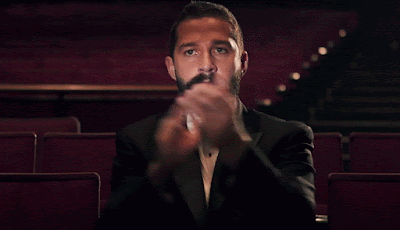Why do we applaud? How did slapping our hands together, often in large groups, become a communal form of approval?
Although I am not a psychologist or an anthropologist, I love to speculate as to the origins of human behavior. Why do we clap? Why do we boo? Why do we laugh out loud when something amuses us?
Until we get a time travel machine and visit the first caveman dance-off, we will probably never know the true origins of applause.
But there's a fascinating article that makes an attempt:
A Brief History of Applause: the "Big Data" of the Ancient World
In a nutshell, clapping is an immediate way for the masses to share an opinion. Author Megan Garber brings together clues from Ancient Rome and a few other archaic societies to demonstrate the very democratic roots of applause. If an actor, musician, or a politician want a measure of their success and adoration, applause will provide instant results.
Some of my favorite tidbits from the article:
At the end of performances in ancient
Laudiceni (also known as clackers or claques) were professional clappers. If you paid enough money, a group of them would show up to applaud,
There's also an amusing albeit disturbing anecdote about Stalin and applause.
Also, the author mentions how in ancient
The bricks, the roof tiles, and the bees
Good job with the article, Megan Garber. Let's give it up for her. *claps*
PS: Here is a cool V-Sauce video that digs deeper into the topic.



No comments:
Post a Comment